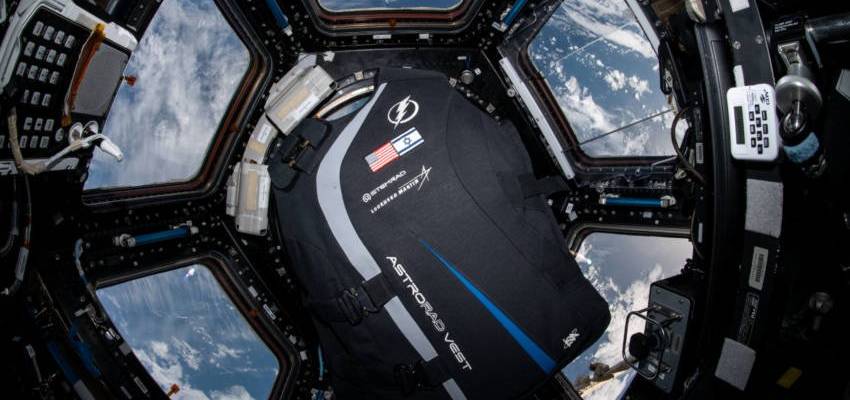Israeli company that developed anti-radiation vest for NASA wins funding to manufacture new vests on board the space station out of waste plastic.
The Israeli company that developed an anti-radiation vest for astronauts to wear on the International Space Station has been awarded more funding, this time to show NASA how to make vests on the space station itself.
Tel Aviv-based StemRad produces the AstroRad Vest, which was launched last fall on a supply rocket to the ISS and was photographed on board earlier this year by Jewish astronaut Jessica Meir.
StemRad is one of the four winners from a $2 million development fund awarded jointly by Space Florida and the Israel Innovation Authority. StemRad will team up with the Jacksonville, Florida company Made In Space to develop a method for the in-space recycling of plastic waste materials aboard the space station and turn it into personal radiation protective equipment.
“Space Florida congratulates the winning collaborations in the latest round of this thriving partnership between the State of Florida and Israel,” said Space Florida President & CEO Frank DiBello.
The vest is intended to protect astronauts from harmful radiation in space. While going about their activity on the space station, astronauts will wear the AstroRad and take note of things like comfort over long periods of time. This will help researchers on Earth finalize the best design for future long-duration missions.
“Florida’s space industry is etched into our state’s incredible history, and today’s award winners will now have the chance to leave their mark in history as well,” said Lt. Governor Jeanette Nuñez. “I’m grateful for the strong relationship our state has with the nation of Israel and expect to see great things from our combined efforts to expand our footprint in space.”
AstroRad was developed by StemRad following the success of its first product, used by first responders throughout the world, which consists of a belt that protects the pelvis, thus ensuring the survival of critical bone marrow stem cells. StemRad collaborated with Lockheed Martin to adapt its technology for use in space.










